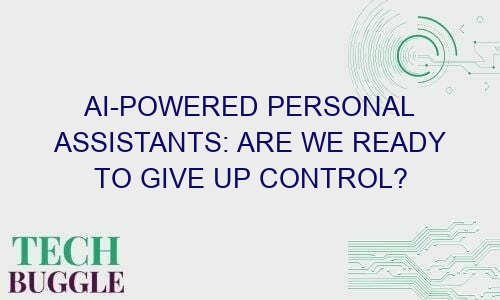AI-powered personal assistants are becoming into more than just practical tools in the era of rapid automation and machine learning; they are starting to make decisions for us on a regular basis. Virtual assistants like Siri, Alexa, and Google Assistant have completely changed the way we use technology, from answering emails and managing your calendar to reminding you to drink water or making weather-based clothing recommendations. Platforms like Slotsgem are seen by many as only a small part of how AI is subtly changing routine chores for purposes of productivity, amusement, or lifestyle enhancement.
However, as these helpers get more proactive and intelligent, a crucial question comes up: are humans really prepared to cede authority to machines?
From Orders to Discussions
“Set a timer for 10 minutes” or “Call Mom” were common direct directions used by early personal assistants. These days, they can identify patterns in human behavior, initiate tasks without prompting, and are context-aware. Google Assistant may suggest when to leave for your next meeting based on real-time traffic. It’s possible that Alexa will learn your favorite tunes and start playing them at the same time every day. These aides are becoming more predictive than reactive, which raises both concerns and feelings of comfort.
AI, on the one hand, makes daily living less complicated. Thanks to clever nudges, it’s now simpler than ever to manage your time effectively, navigate urban areas, or even practice regular meditation. On the other hand, we can be subtly giving up our independence. You start to wonder where the line is drawn when a machine starts making decisions for you, even minor ones.
Freedom vs. Convenience
One of the biggest advantages of AI-powered assistants is their ability to reduce decision fatigue. Letting an assistant manage some of your daily decisions, like what to eat, when to wake up, and which route to take, can really lighten your load. The drawback? an increasing reliance.
Consider entrusting your monthly grocery order to your assistant. When it begins selecting your meals as well, what will happen? How much of your life do you really control if you rely on AI for your choices, responsibilities, and relationships? And can you truly believe that the AI is only working for you if it is owned by a tech company with its own interests?
Privacy
Privacy is a significant issue with AI helpers. For these tools to work properly, a lot of data is required. This includes emails, calendar information, location history, audio recordings, and more. The trade-off is straightforward: better service equates to more data. However, it also brings up security and ethical concerns.
Who is the owner of this data? How safe is the storage? What control do you have over your own preferences and habits of behavior? For example, many users are not aware that even when they are not actively using their assistants, they may be recording. This is a serious matter at a time when concerns about spying and data breaches are becoming more widespread.
A Different Kind of Partnership
AI assistants are evolving into virtual friends rather than merely tools. When they’re lonely, some people talk to them. Others employ them as life planners, personal trainers, or even emotional support systems. A new kind of relationship—one in which emotional ties might develop with non-human entities—is hinted at by this progression.
This brings up ethical and psychological issues. Can we develop positive relationships with AI? Is it appropriate for machines to have personalities? Will this change ultimately cause our perceptions of authority, accountability, and individual agency to become hazy?
The Road Ahead
Personal assistants driven by AI are definitely here to stay. Their advantages are numerous, ranging from improving productivity to simplifying daily tasks. However, as their responsibilities grow, society has to have more in-depth discussions about trust, autonomy, and control.
In the end, the question is not if AI will become more dominant, but rather if humanity will be able to detect it when it does.

